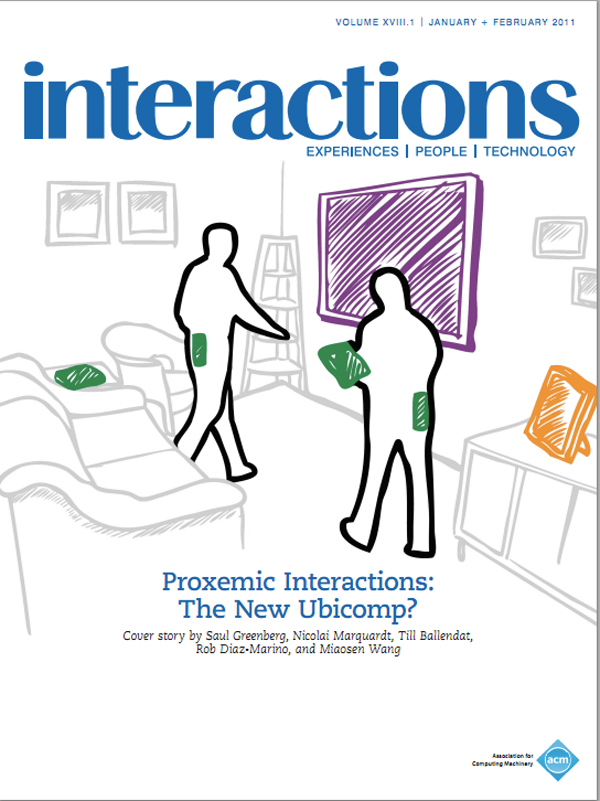Authors:
Saul Greenberg, Nicolai Marquardt, Till Ballendat, Rob Diaz-Marino, Miaosen Wang
"When you walk up to your computer, does the screen saver stop and the working windows reveal themselves? Does it even know if you are there? How hard would it be to change this? Is it not ironic that, in this regard, a motion-sensing light switch is "smarter" than any of the switches in the computer...? Bill Buxton [1] In 1966 anthropologist Edward Hall coined the term "proxemics," an area of study that identifies the culturally dependent ways in which people use interpersonal distance to understand and mediate their interactions with other people [2]. While his theory of proxemics…
You must be a member of SIGCHI, a subscriber to ACM's Digital Library, or an interactions subscriber to read the full text of this article.
GET ACCESS
Join ACM SIGCHIIn addition to all of the professional benefits of being a SIGCHI member, members get full access to interactions online content and receive the print version of the magazine bimonthly.
Subscribe to the ACM Digital Library
Get access to all interactions content online and the entire archive of ACM publications dating back to 1954. (Please check with your institution to see if it already has a subscription.)
Subscribe to interactions
Get full access to interactions online content and receive the print version of the magazine bimonthly.







Post Comment
No Comments Found